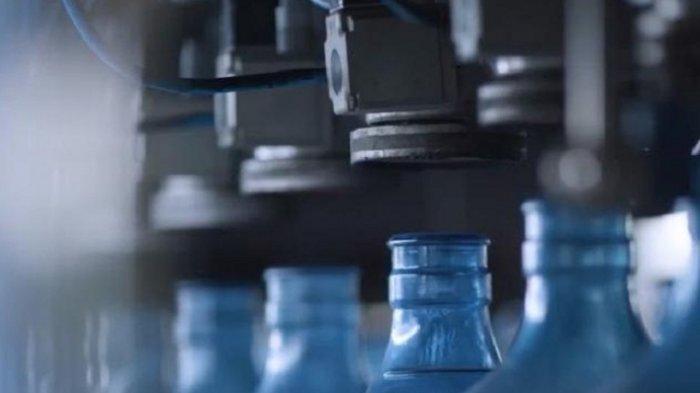TRIBUNNEWS.COM – A chemist and polymer expert from the Bandung Institute of Technology (ITB), Ahmad Zainal Abidin, ensures that gallon bottled drinking water (AMDK) is reused from polycarbonate (PC) which contains elements Bisphenol A (BPA) safe for consumption.
According to him, this has been proven from the results of research conducted by the Center for Polymer Technology (STP) – BPPT Serpong.
Head of Polymer and Membrane Technology Laboratory ITB It explained that the results of the study showed that none of the samples from the reusable gallon bottled drinking water in the study contained BPA above the maximum requirement that could endanger human health.
He said the migration of BPA from reused gallons to water products in it was still one-hundredth of the maximum allowed level.
Also read: Reusable Gallon AMDK Is It Safe? BPOM Gives an Explanation of the Problem
“Including gallon samples exposed to the sun, although it was found that there was a higher migration content than those placed in places that were not exposed to the sun, the levels were still far below the maximum allowable limit,” said Zainal.
“That means, people throughout Indonesia don’t have to worry about using water in gallon packs for reuse,” said Zainal convincingly.
From a scientific point of view, said Zainal, all these chemicals must be dangerous.
Not only BPA, the precursor substances used to make PET (polyethylene terephthalate) or disposable plastic bottles or gallons are equally dangerous.
“Ethylene glycol, which is one of the precursors used to make PET or disposable plastic bottles or gallons, is very toxic and can attack the central nervous system, heart and kidneys and can be fatal if not treated immediately,” Zainal explained.
“But, in the form of polymers, where the chemical substances that are the precursors for bottles or gallons of plastic react chemically to form PC and PET polymers, it becomes harmless. The important thing is that it is maintained so that the polymer does not decompose back into its precursor form. Therefore, the packaging needs to be monitored regularly by BPOM,” said Zainal.
–


